
When it comes to bespoke menswear, one might think of London’s Savile Row or European countries such as Italy. But not Paris, where tailoring houses are scattered across the city, rather than in one district, and are found mainly through word-of-mouth. It is curious that there isn’t much of a bespoke tradition in the French capital, as men customarily wear suits to the office.
A turbulent macro environment has caused several bespoke tailors to leave the city. Last year, Kenjiro Suzuki left for Japan, while Emanuel Vischer closed his Paris outlet and reopened in Basel, Switzerland. Kees van Beers never recovered from the slowdown caused by Covid and shut his tailoring studio. Others have been absorbed by bigger companies: LVMH-owned Berluti bought French menswear label Arnys in 2012, and also picked up tailors Aïdée and Florian Sirven when their business went under a few years ago.
But for a handful of survivors, mostly small and independent, business has been good as customers globally resume travel and younger consumers take greater interest in tailoring, particularly where made-to-measure — a more affordable alternative to bespoke — is offered. Unlike bespoke services, where a new pattern is drawn up for each client, made-to-measure offerings are ready-made patterns that are adjusted based on a customer’s measurements.
Camps de Luca is a third-generation family business, founded in 1969, which makes suiting and other specialist formalwear. Communications director Clara de Luca, the granddaughter of co-founder Mario de Luca, credits Covid with bringing in a new batch of younger clients willing to pay the €8,000 price tag of its suits. “We had worries when we reopened but men’s attitudes had completely evolved,” she says.
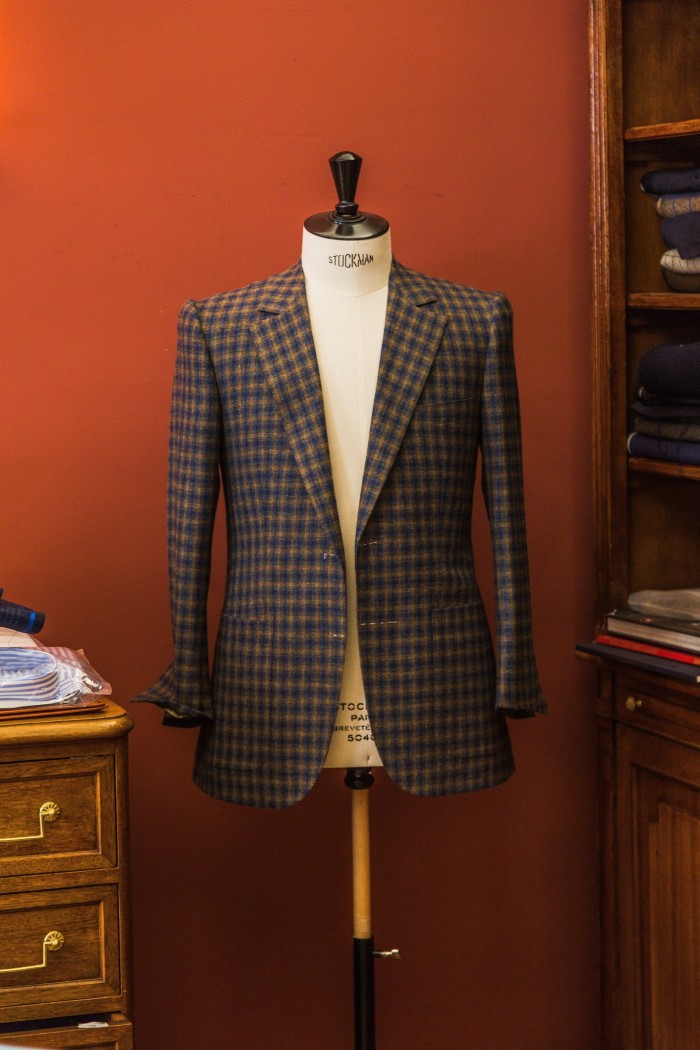
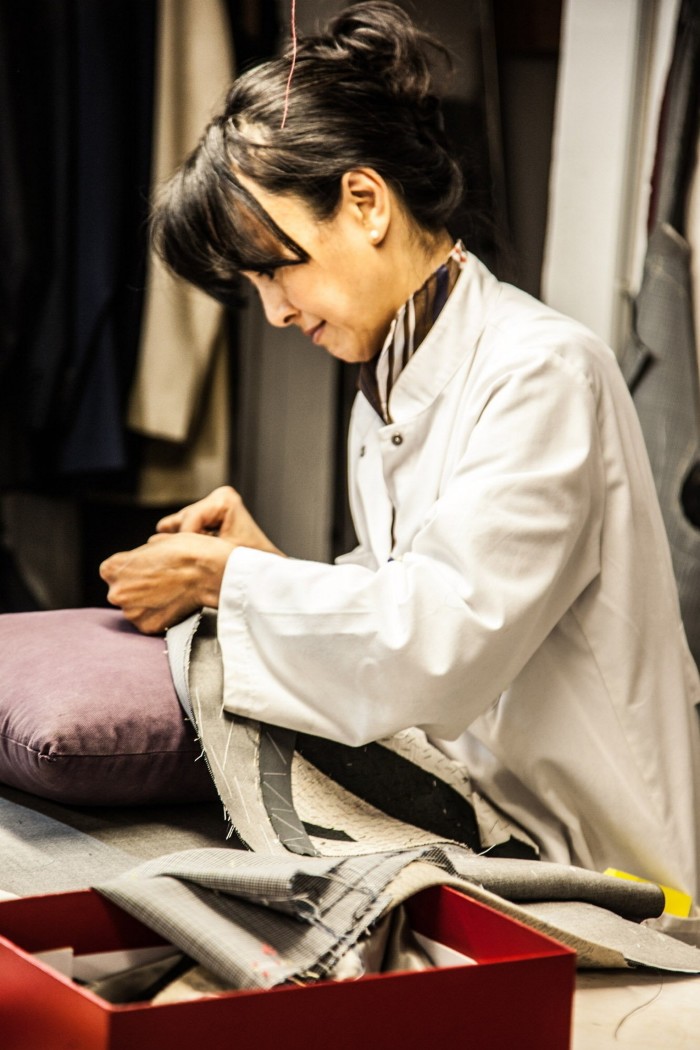
Growing up, de Luca and her two brothers spent every Wednesday afternoon in the atelier, but there were no expectations for them to go into the family business. Instead, they were encouraged to explore other interests. So, in her twenties, de Luca worked in fashion marketing and later ran a restaurant in Cambodia, while her two brothers, Charles and Julien, got jobs in Parisian fine dining and London finance, respectively.
De Luca returned to the business in her thirties, and the brothers in their late twenties, because “we didn’t want it to be snuffed out”. She says the business was slowing down and their parents were uncertain about its future. It required her brothers, who today work as tailors in the company, to learn the basics of using a needle and thread before graduating to pattern-cutting, fittings and customer service.
Based on Rue des Pyramides in Paris’s 1st arrondissement, the Camps de Luca store boasts a bespoke room that allows clients to be fitted privately as well as more affordable options via a new made-to-measure line, Ateliers de Luca, which is half the price of its bespoke offering.
Similarly to de Luca, Lorenzo Cifonelli was discouraged from going into his family’s tailoring business, Cifonelli, which was founded in 1880 in Rome by his great-grandfather before its operations moved to Paris in 1926. His father had told him that tailoring was a tough business, and Cifonelli had his own doubts that bespoke menswear services could survive.
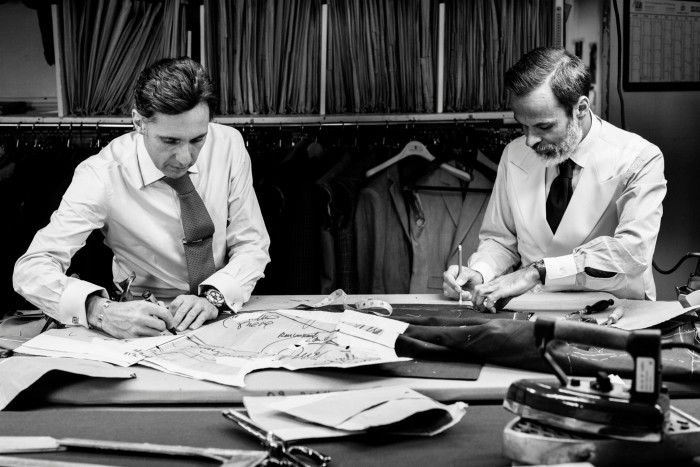
To make its offering more accessible, Cifonelli has expanded into made-to-measure, which are available in its newly opened stores on Rue François 1er in Paris and Clifford Street in London. Although Cifonelli says the bespoke business is still growing strong, thanks to surprising interest from regions such as Argentina, Brazil, Costa Rica and Mexico, and not just the US, France, Austria and Switzerland, where Cifonelli typically saw the most business.
Cifonelli’s suits are made in their own ateliers in Paris. On the same floor as the receiving rooms, 40 petites mains sit at tables sewing away in a warren. Some of them wear ties and bespoke trousers. Many are noticeably young, making Cifonelli an anomaly among tailoring houses in Paris, which, according to French tailor Julien Scavini, do not typically employ young people due to their lack of technical knowledge, usually accumulated by years of experience.
The high cost of French labour has led some bespoke tailors to source their labour overseas. Mario Alessandro Costa, who has run the tailoring shop Howard’s Mesure since 1995, has a family-owned atelier between Rome and Naples that manufactures all suit components, and contracts out to larger brands, such as Canali, too. It allows Costa to charge half that of his competition — a bespoke suit costs €4,500 — which is attractive to clients, he says. Still, made-to-measure accounts for a majority of the business, at 90 per cent.
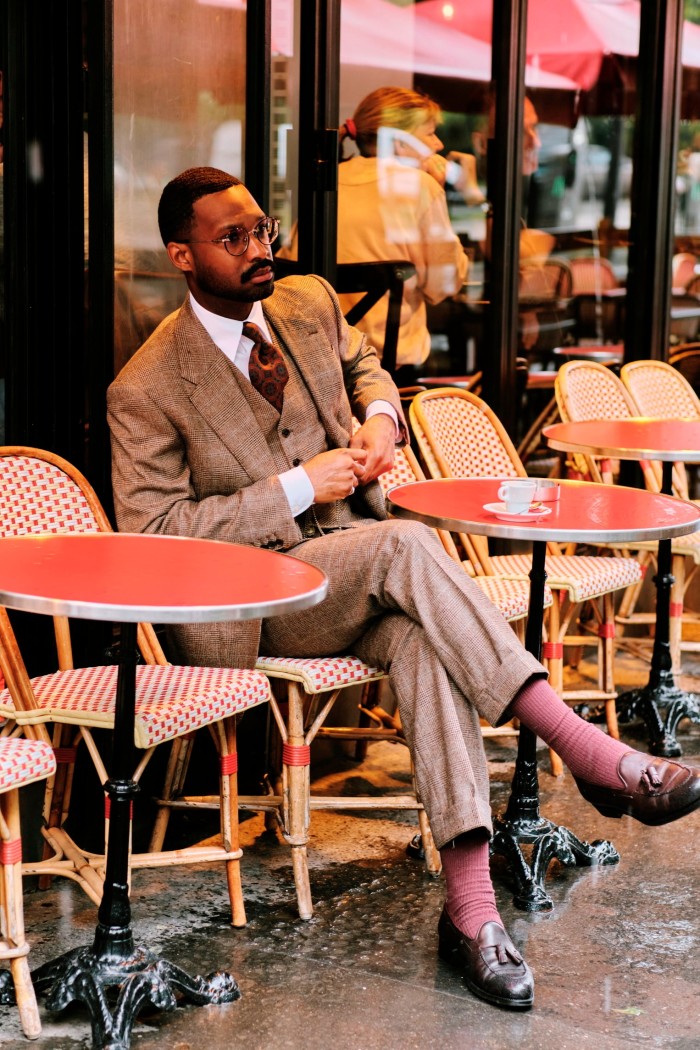
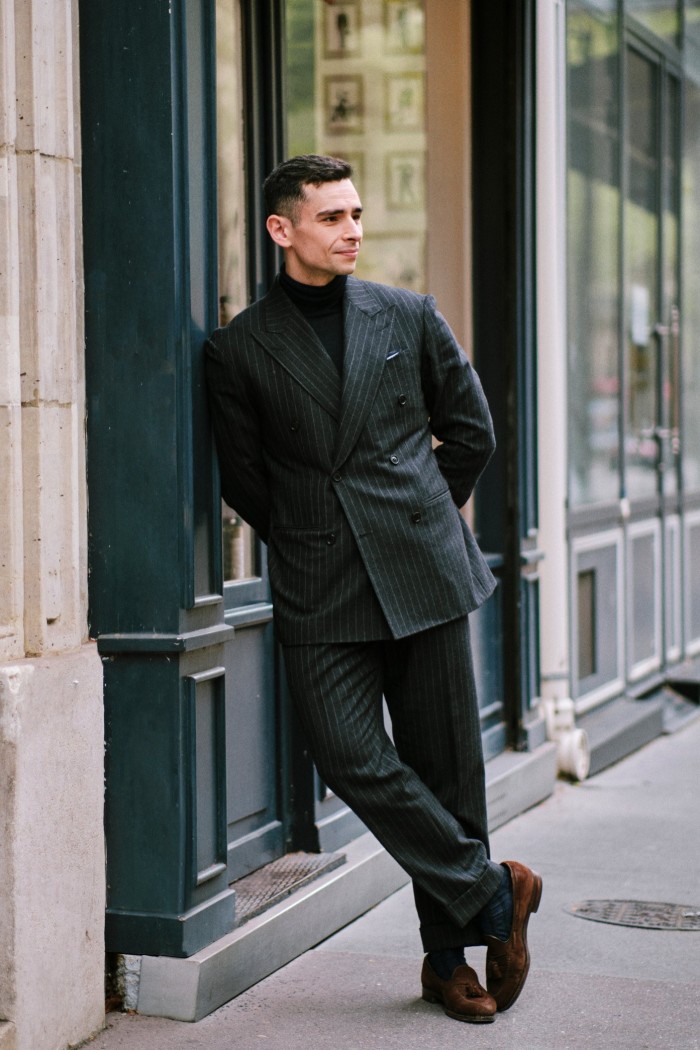
Scavini still sees value in bespoke and occasionally makes a few special suits when asked. Since he has been in business, from 2011, he has made about 40 suits, contracting the production to a local 83-year-old tailor (another reason why he is reticent about making bespoke a core part of his business: “I’m scared that one day he’ll die suddenly and leave behind an unfinished suit,” Scavini says).
Cifonelli has made a point of hiring and training a younger workforce, “because people will retire”, he says, “so I have to think of the future”. Finding skilled petites mains is a challenge, he admits, particularly when it comes to bespoke, where the construction of a garment is typically divided among a team, each of whom specialises in specific components, such as attaching sleeves or hand-sewing buttonholes.
For made-to-measure outfits, companies often work with factories in eastern Europe on the full fabrication. “You don’t need savoir-faire for made-to-measure,” Scavini says. “It’s just business.”
Sign up for Fashion Matters, your weekly newsletter with the latest stories in style. Follow @financialtimesfashion on Instagram and subscribe to our podcast Life and Art wherever you listen